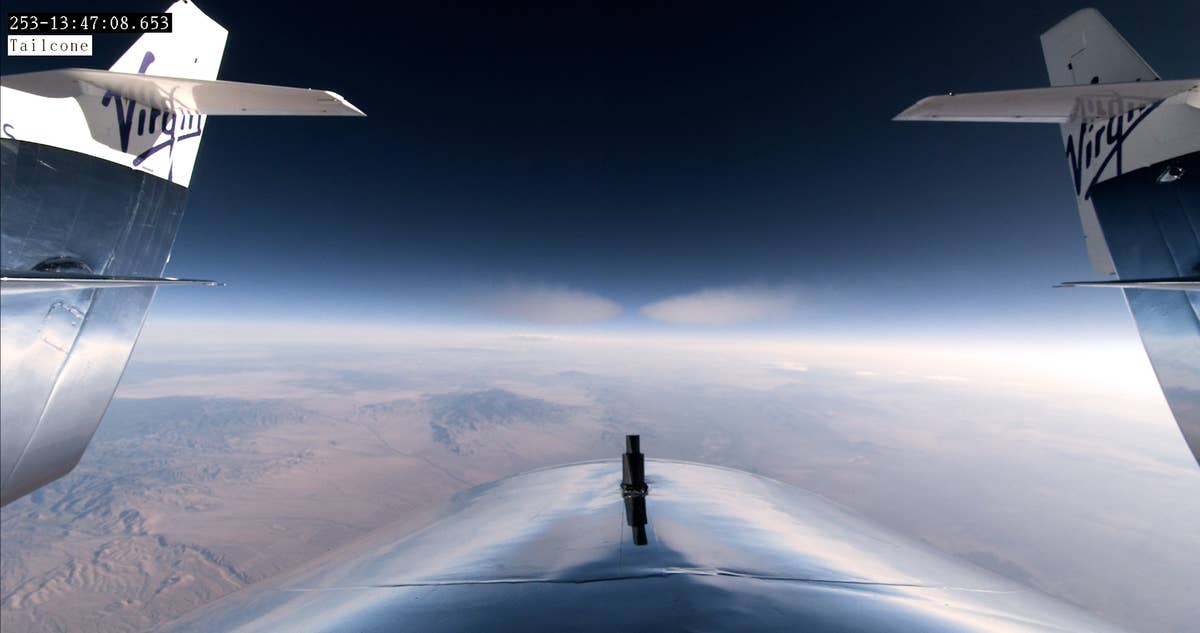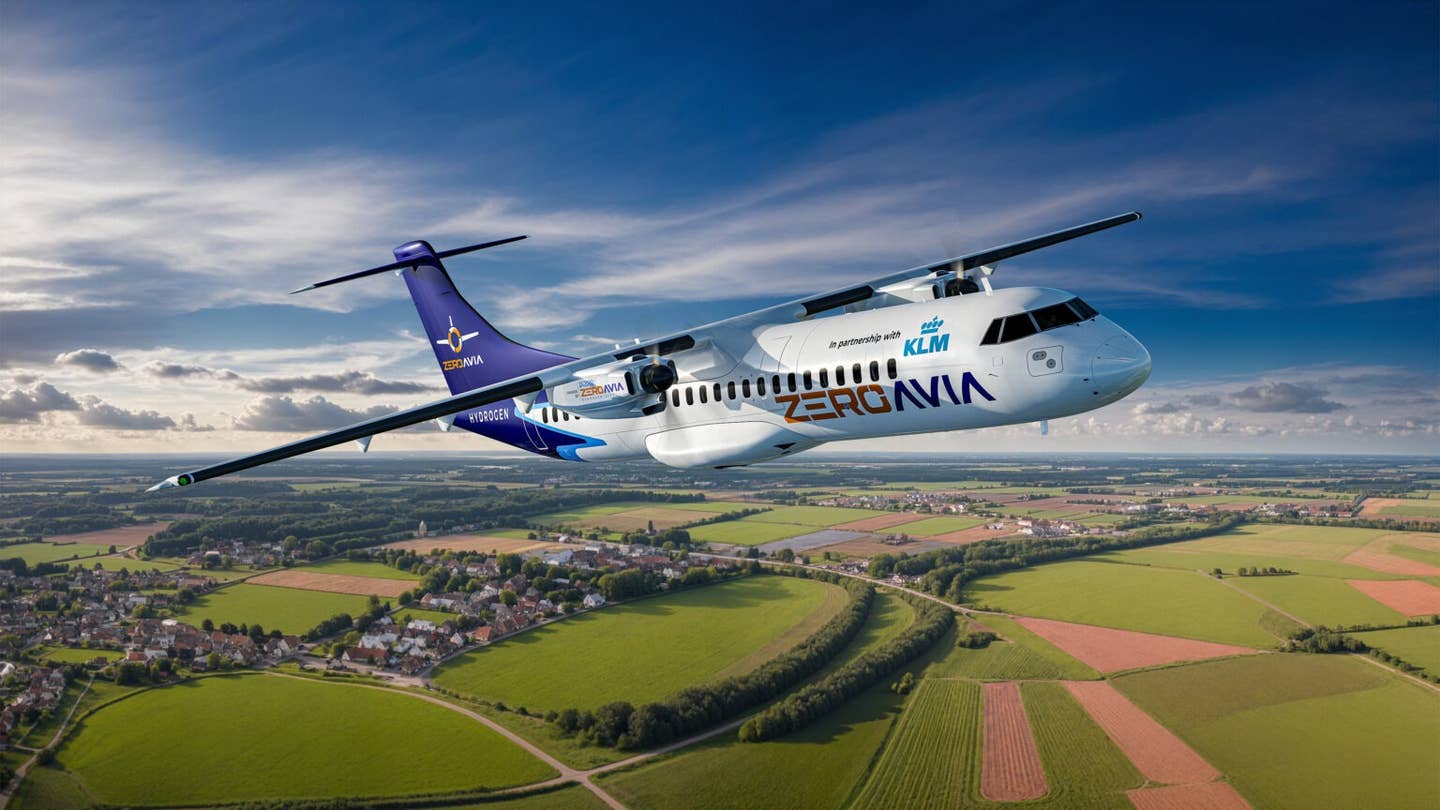Virgin Galactic Plans Return to Space This Month
The crewed mission will clear the runway for commercial launch in June.

A tailcone view from Virgin Galactic’s VSS Unity test flight in April, the first since 2021. [Courtesy: Virgin Galactic]
Ninety minutes of weightlessness, exhilaration, and panoramic views of the Earth for the price of $450,000 a head—that’s the vision Virgin Galactic wants to turn into reality next month.
Billionaire business mogul Richard Branson’s space tourism firm has been quiet since the founder’s highly publicized maiden voyage in 2021. But on Monday, the firm announced its return to space with a test flight later this month, which could finally clear the way for a commercial launch in June.
Virgin Galactic’s VSS Unity and VMS Eve, the spacecraft and "mothership" that enabled Branson’s July 2021 flight, have been sidelined for years. At first it was because of a Federal Aviation Administration investigation—like the one currently grounding SpaceX's Starship—which ended that September. Then it was due to delays in refurbishing its aircraft.
Last month, the firm finally got back in the air with an in-orbit test flight, the Unity 24 mission. But this month’s scheduled launch, Unity 25, would send VSS Unity into space for just the fifth time.
The test flight will serve as a “final assessment” of the company’s core offering, an hour-and-a-half-long jaunt to the edge of the atmosphere.
VSS Unity will ascend in tandem with VMS Eve until around 50,000 feet, when the spacecraft will separate from the mothership and continue its climb alone. After spending some time hovering in the heavens, it will adjust its trajectory back to Earth before descending and gliding into a landing.
Unity 25 is slated to be crewed by four astronauts: Beth Moses, who on a prior Virgin Galactic mission became the first woman to reach space on a commercially launched vehicle; Jamila Gilbert, who will join Moses as one of the first 100 women to reach space; Christopher Huie, who would become the 19th Black astronaut in the world; and Luke Mays, a 25-year NASA vet.
An additional two pilots will be onboard, while two others will be stationed at Spaceport America, Virgin Galactic’s launch site outside Las Cruces, New Mexico.
Founded in 2004, Virgin Galactic had initially expected to be flying commercially by 2007. Since then, that date has been pushed back on several occasions, each time accompanied by Branson’s promise that the service would be operational in a few months or years. But crashes and unhappy investors have so far derailed the billionaire’s efforts.
Could this time be for real, though? Branson will certainly hope so. Since 2018, Virgin Galactic has recorded $1.5 billion in operating losses, punctuated by a $150 million net loss in Q4 2022—a nearly 50 percent increase year over year.
A fresh test flight and subsequent commercial launch could smooth things over. If this month’s test run is successful, Virgin Galactic is expected to deliver four officers from the Italian Air Force to the edge of the atmosphere next month. Following that, the firm hopes to complete as many as 400 trips per year.
Virgin Galactic’s main space tourism rival is Jeff Bezos-backed Blue Origin, which flew Bezos to space just weeks after Branson’s trip (and William Shatner a few months after that). The company hasn’t had a launch since September 2022, when its New Shepard rocket exploded after minutes, though the spacecraft is expected to be back in action this year.
As of July 2021, Blue Origin had sold nearly $100 million in tickets. But Virgin Galactic may have it beat—as of Monday, it had sold around 800 tickets worth $210 million. It’s worth noting, however, that only 200 of those were bought at the current $450,000 price tag, and several were purchased a decade ago.
It will likely take decades for space travel to become affordable to the average person if it ever does. Until then, Virgin Galactic will make its money by courting the super-rich with promises of “breathtaking views” and “life-changing transformation,” per its website. Successful launches this month and next could help curry favor.

Subscribe to Our Newsletter
Get the latest FLYING stories delivered directly to your inbox






